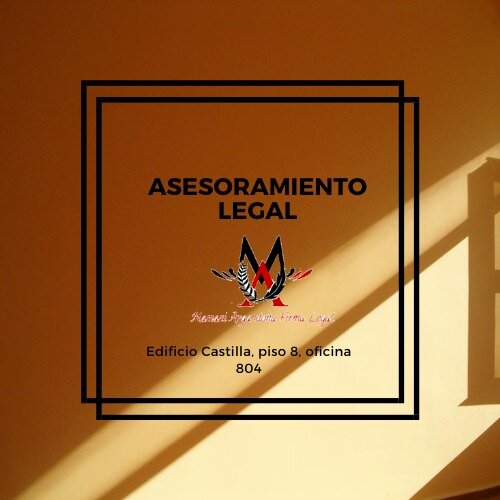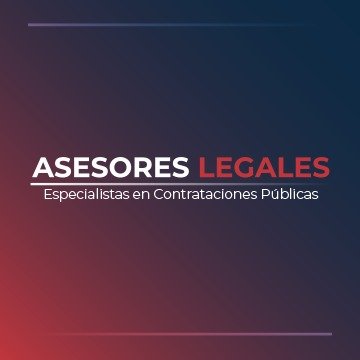Best Employer Lawyers in Bolivia
Share your needs with us, get contacted by law firms.
Free. Takes 2 min.
Or refine your search by selecting a city:
List of the best lawyers in Bolivia
About Employer Law in Bolivia
Employer law in Bolivia is primarily designed to regulate the relationship between employers and employees, ensuring the rights and responsibilities of both parties are clearly defined and upheld. This field of law covers areas such as worker's rights, employment contracts, job security, and occupational health and safety. Bolivia's labor laws are known for being quite protective of employees, reflecting the country's commitment to social justice and equitable labor relations.
Why You May Need a Lawyer
Seeking legal advice in the field of employer law in Bolivia may be essential in various situations, including:
- Drafting or reviewing employment contracts to ensure compliance with Bolivian labor laws.
- Handling disputes regarding unfair dismissal or wrongful termination claims.
- Ensuring the workplace meets health and safety regulations.
- Navigating issues related to wage disputes, overtime pay, and severance packages.
- Understanding and applying Bolivian employment laws in cases of workforce restructuring or downsizing.
Local Laws Overview
Several key aspects of Bolivian employment laws are crucial for employers and employees to understand:
- Employment Contracts: Contracts must be in writing and clearly state the terms and conditions of employment.
- Minimum Wage: The Bolivian government sets a national minimum wage, which is subject to periodic updates.
- Working Hours: Standard working hours in Bolivia are 8 hours per day and 48 hours per week, with certain exceptions.
- Termination of Employment: Strict regulations govern the dismissal process, requiring just cause and adherence to due process.
- Unions and Collective Bargaining Agreements: Employees have the right to organize and engage in collective bargaining.
Frequently Asked Questions
What is the probationary period in employment contracts in Bolivia?
The typical probationary period in Bolivia is three months, after which employees gain full job security rights.
Are employers required to provide severance pay?
Yes, employers are generally required to provide severance pay based on the length of service, pursuant to Bolivian labor law.
Can an employer modify employment contract terms unilaterally?
No, any changes to the terms of employment must be mutually agreed upon by both the employer and the employee.
What are the rules regarding overtime pay?
Overtime must be compensated at a rate of 200% of the usual hourly wage, or a day of compensatory rest may be granted.
Are there specific requirements for layoffs or redundancies?
Employers must follow strict legal procedures and provide valid justification for layoffs or redundancies in Bolivia.
How are employee grievances addressed legally?
Employees can file grievances with the Ministry of Labor or seek mediation or court intervention in disputes.
What is the legal age for employment in Bolivia?
The minimum legal working age in Bolivia is 14 years; however, certain restrictions apply to young workers.
Can a foreign company hire staff directly in Bolivia?
Yes, but foreign companies must comply with Bolivian registration and labor laws to legally hire employees.
What are the statutory holidays in Bolivia?
Statutory holidays include New Year's Day, Independence Day, and several other national and cultural holidays.
Is it mandatory to provide health insurance to employees?
Employers are required to provide social security benefits, which include health insurance for their employees.
Additional Resources
For more information, consider consulting the following Bolivian resources:
- The Ministry of Labor, Employment, and Social Welfare
- Chambers of Commerce and Industry associations
- Legal aid organizations specializing in labor law
Next Steps
If you require legal assistance in employer-related matters in Bolivia, consider taking the following steps:
- Conduct a preliminary research to understand your specific issue better.
- Consult with a legal professional specializing in Bolivian employer law.
- Prepare relevant documents and information before your consultation.
- Consider seeking advice from multiple sources or obtaining a second opinion.
- Follow up on any legal guidance provided to ensure compliance and resolution.
Lawzana helps you find the best lawyers and law firms in Bolivia through a curated and pre-screened list of qualified legal professionals. Our platform offers rankings and detailed profiles of attorneys and law firms, allowing you to compare based on practice areas, including Employer, experience, and client feedback.
Each profile includes a description of the firm's areas of practice, client reviews, team members and partners, year of establishment, spoken languages, office locations, contact information, social media presence, and any published articles or resources. Most firms on our platform speak English and are experienced in both local and international legal matters.
Get a quote from top-rated law firms in Bolivia — quickly, securely, and without unnecessary hassle.
Disclaimer:
The information provided on this page is for general informational purposes only and does not constitute legal advice. While we strive to ensure the accuracy and relevance of the content, legal information may change over time, and interpretations of the law can vary. You should always consult with a qualified legal professional for advice specific to your situation.
We disclaim all liability for actions taken or not taken based on the content of this page. If you believe any information is incorrect or outdated, please contact us, and we will review and update it where appropriate.
Browse employer law firms by city in Bolivia
Refine your search by selecting a city.

















